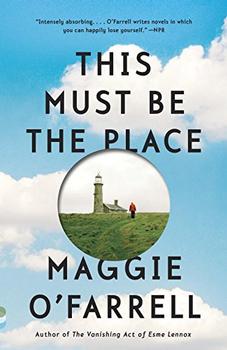Summary | Excerpt | Reviews | Beyond the book | Read-Alikes | Genres & Themes | Author Bio

In the opening chapter of Elise Juska's The Blessings, college freshman Abby has returned to Philadelphia to spend Christmas with her large extended Irish-Catholic family, her first time coming home for the holidays. Like many college students, she surprises herself by already feeling somewhat distanced from family traditions, an observer rather than merely an unthinking participant. Near the end of the chapter, as Abby gathers her things to drive back to Boston for a New Year's party with friends, her aunt Margie pulls her aside and says to her niece, "It's a good moment...when everyone is okay." Margie's observation can be read as an affirmation of the Blessing family's good fortune, a restating of their joyful holiday celebrations. But it can also, of course, be read as foreboding, an acknowledgment that happiness, even just "okay-ness," is temporary at best.
The transitory nature of contentment, even the appearance thereof, is certainly explored at length in Juska's novel. For even as the Blessings are celebrating their family reunion that Christmas, Abby's grandpa has only two months to live before dying of a heart attack, and Abby's uncle, John Blessing, a young husband and father, is already harboring the kidney cancer that will kill him only a little over a year later. The rippling reverberations of these tragedies affect nearly everyone in this close-knit family - the kind of family that attends everyone's Little League games and takes photos at everyone's prom, that gets together to celebrate happy occasions and commemorate sad ones, that continually asks each other "when are you coming home again?"
Beginning in 1992 and extending to the present, The Blessings is composed of nearly a dozen well-developed chapters, each of which focuses on a different member of the family facing a crisis large or small. There's Dave, Abby's father, who (in a chapter somewhat reminiscent of Tom Perrotta's Little Children) focuses on being a productive member of his neighborhood watch program even as his own family falls apart behind closed doors. There's Alex, Abby's younger brother, who realizes while on vacation in Spain that he can never love a woman who doesn't understand his family. And there's Patrick, John's younger brother, who finds professional and personal success in the years after John's death but is desperately tempted to throw it all away.
Throughout the novel, right up until the affecting final scene, Juska explores the paradox of family—how it is the thing that both stifles and sustains you, how it can be simultaneously predictable and unexpected, stable and fragile. Because of the novel's long time frame and shifting focus from one character to another, it lacks a traditional plot, other than the storyline of a family's continual evolution over time, grounded by holidays, funerals, celebrations, and other gatherings. Instead of a seamless overarching narrative, each chapter reads like a short story, and the result is the best kind of family portrait—one in which you know each member's foibles and flaws and yet love them anyway.
![]() This review was originally published in The BookBrowse Review in May 2014, and has been updated for the
June 2015 edition.
Click here to go to this issue.
This review was originally published in The BookBrowse Review in May 2014, and has been updated for the
June 2015 edition.
Click here to go to this issue.

If you liked The Blessings, try these:

by Chloe Benjamin
Published 2019
A dazzling family love story reminiscent of Everything I Never Told You from a novelist heralded by Lorrie Moore as a "great new talent."

by Maggie O'Farrell
Published 2017
A dazzling novel from bestselling writer Maggie O'Farrell, winner of the Costa Novel Award—an irresistible love story that crisscrosses continents and time zones as it captures an extraordinary marriage, and an unforgettable family, with wit, humor, and deep affection.
The moment we persuade a child, any child, to cross that threshold into a library, we've changed their lives ...
Click Here to find out who said this, as well as discovering other famous literary quotes!
Your guide toexceptional books
BookBrowse seeks out and recommends the best in contemporary fiction and nonfiction—books that not only engage and entertain but also deepen our understanding of ourselves and the world around us.